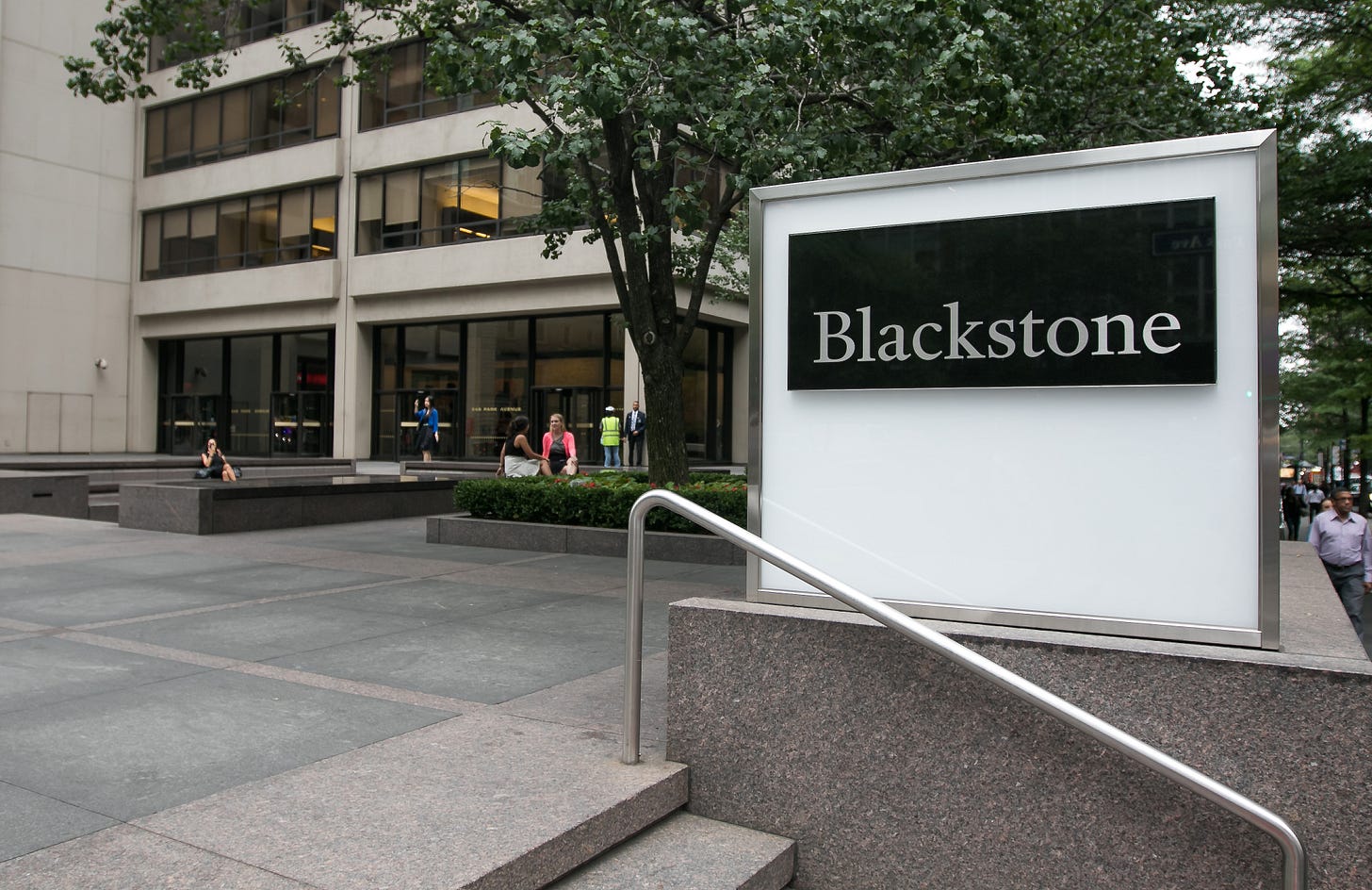Private Equity's New Era
Hi there. Welcome to the latest edition of The Lower Middle Market. We’re the only news source tracking lower middle market M&A. Our goal is to keep you up to date on what’s happening in the market by highlighting the latest news, transactions, and activity in less than 5 minutes.
We’re coming to you live from sunny Southern California where we’re attempting to be the only financial news update this week to not mention the words “bank run” (strike one).
Here’s what we have for you today:
The retail revolution in private equity
Fundraising update
Valuations cooled in Q4
Private Equity’s New Era
Many successful consumer companies were built around the framework of democratizing what the rich do for the masses. Uber did it for black car service, Stitchfix for custom wardrobe styling, and Betterment/Wealthfront for robo wealth/investment advisory. Could the same trend soon be hitting private equity?
Blackstone is taking charge of attracting less affluent investors with new private equity products and services. Although their services don’t exactly target mom-and-pop investors, they’re targeting what the Institutional Investor refers to as the “barely rich.” These are investors with $1 million to $5 million in investable assets, who have historically low allocations to alternative investments. According to Joan Solotar, Blackstone’s head of private wealth solutions, at stake is an $80 trillion market of individual investors. “And today less than 5 percent is invested in alternative products.” On the services side, Blackstone also launched Blackstone University to help educate and introduce less sophisticated investors to the benefits of allocating investments to alternatives.
Another potential factor affecting the “retail revolution” in private equity, is the changing qualifications for becoming an accredited investor. Although it’s easier than most think to become “accredited”, historically it was based on income and net worth requirements. In 2020, the SEC amended its requirements to include a third option to meet the definition requirements by gaining a Series 7, 65, or 82 license. Recently, a new bill was introduced that would make becoming an accredited investor even easier. If it passes, the SEC will create a new exam anyone can take specifically to become an accredited investor.
Big firms like Blackstone are targeting the barely rich to become limited partners, by investing in their funds. That will accelerate the growth of perpetual capital and fee-related earnings at these firms. However, another trend to watch in lower middle market private equity is the influx of individual buyers participating on the deal level. This group includes search funds, independent sponsors, and accredited individual investors who see opportunities to participate in deals that were once confined to more sophisticated investors. Although they tend to participate in the lower end of the middle market, just under private equity thresholds, the lines are beginning to blur.
We’re curious to watch where this industry goes as more retail investors look to participate both indirectly and directly in private equity investments. The downstream effects could be wide-ranging. Have any thoughts on where this goes and who’s set to benefit? Please respond to this email by telling us what you think.
Fundraising
Tritium Partners secured $684 million for Fund III Link
Gemspring Capital announced two funds with $2.1 billion in aggregate commitments Link
Rainier Partners raised $300 million for lower-mid market services businesses Link
The Riverside Company announced Riverside Micro-Cap Fund VI Link
Other stuff
This multifamily office is enlisting the expertise of entrepreneur clients for a new PE platform Link
Valuations cooled in Q4 suggesting flight to quality is oversimplified Link
World’s richest woman, L’Oreal billionaire, beefs up investment firm Link
Venus Williams joins lower mid market PE firm Topspin Link
Have a great rest of the week! We’ll leave you with this Tweet…




